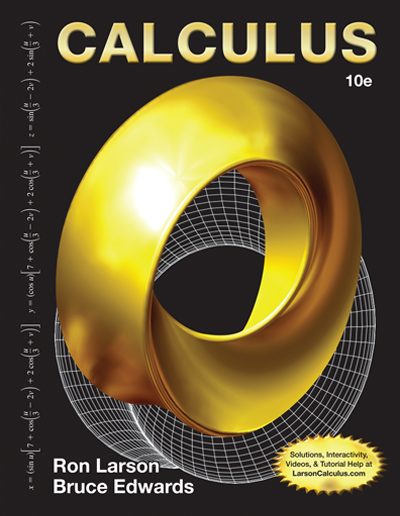Carl Friedrich Gauss
(1777 – 1855)
Carl Friedrich Gauss was arguably the greatest mathematician who ever lived. At the very least, he ranks with Archimedes and Newton, and shares with them the distinction of having altered the course of the history of mathematics. As George F. Simmons notes in Calculus Gems: Brief Lives and Memorable Mathematics, “[Gauss] surpassed the levels of achievement possible for ordinary men of genius in so many ways that one sometimes has the eerie feeling that he belonged to a higher species.”
Gauss was born on April 30, 1777, in Brunswick, Germany. His father, a laborer, scorned intellectual pursuits and disparaged his brilliant son’s emerging genius. Gauss’s mother, though illiterate, was more perceptive. She idolized her son from the moment of his birth, and later intervened on his behalf when Gauss’s father tried to block his scholarship. Gauss is generally believed to have been cold and unyielding, but he and his mother had an unusually warm and supportive relationship until her death at the age of ninety-seven.
Gauss was born on April 30, 1777, in Brunswick, Germany. His father, a laborer, scorned intellectual pursuits and disparaged his brilliant son’s emerging genius. Gauss’s mother, though illiterate, was more perceptive. She idolized her son from the moment of his birth, and later intervened on his behalf when Gauss’s father tried to block his scholarship. Gauss is generally believed to have been cold and unyielding, but he and his mother had an unusually warm and supportive relationship until her death at the age of ninety-seven.
Gauss’s mathematical genius was first apparent when, at the age of three, he detected an error in his father’s computations. This is especially impressive in light of the fact that he had never been taught arithmetic. At the age of ten, he amazed his teacher by mentally calculating the sum of all numbers from 1 to 100. Gauss explained that he had noticed a pattern that suggested a formula; in any event, he arrived almost instantly at the correct answer.
The boy’s legendary genius caught the attention of Ferdinand, Duke of Brunswick. He arranged for Gauss to be educated first at Caroline College, a preparatory school, and then at the University of Göttingen.
While still at Caroline College, Gauss devised the method of least squares. Nevertheless, he was not especially fond of mathematics. Gauss was on the verge of committing himself to the study of classical languages when he made a remarkable discovery that determined the focus of his life. At the age of nineteen, he disproved the traditional Euclidean geometers’ belief that all possible regular polygons had already been constructed. Gauss’s seventeen-sided polygon was revolutionary, and he was elated by his achievement. Classical languages were relegated to a distant second on his list of interests, and Gauss embarked on the spectacular career that would earn him the title, “The Prince of Mathematics.”
Gauss’s most prolific years were those he spent at the University of Göttingen as an undergraduate. It was during this period that he wrote his famous treatise on number theory, Disquisitiones arithmeticae. At the same time, he began to develop the theorems that would eventually transform virtually every branch of mathematics.
Gauss claimed that new ideas came to him so quickly that he was unable to note them all. Of those he did record, relatively few were developed and published. Many a mathematician of the nineteenth century found to his dismay that some great discovery had been known to Gauss for many years. Like Newton, Gauss abhorred controversy and was loathe to expose himself to criticism. He was careful to release only perfectly polished treatises, and was famous for the peculiar habit of obliterating any trace of the reasoning by which he arrived at his conclusions.
In 1801, Gauss devised a means of calculating the orbit of the planetoid Ceres, which had been glimpsed once, then lost. Gauss’s prediction of Ceres’s next appearance was so accurate that astronomers were able to confirm its existence in the precise location Gauss had indicated one year before. He repeated this success in 1802 by determining the orbit of the newly-discovered planetoid Pallas.
Five years later, Gauss was appointed professor of mathematics and director of the observatory at Göttingen, a post he held until his death in 1855. His later years were devoted primarily to the study of electricity, magnetism, geodesy, and surveying.
Gauss married for the first time in 1805, and again in 1809 when his first wife died shortly after the birth of their third child. He fathered three more children with his second wife, and was apparently very happy with both women. Unfortunately, his relationship with his children, particularly his sons, was less harmonious.
Though Gauss continued to work until the day of his death, his last years were dominated by a series of illnesses that left him an invalid. He was seventy-seven years old when he died in his sleep in Göttingen on February 23, 1855.
Links
http://www-history.mcs.st-andrews.ac.uk/Biographies/Gauss.html
http://www.math.wichita.edu/history/men/gauss.html
http://scienceworld.wolfram.com/biography/Gauss.html
References
- Ball, W. W. Rouse. A Short Account of the History of Mathematics. 1908. Reprint. New York: Dover Publications, Inc., 1960.
- Bell, E. T. Men of Mathematics. New York: Simon & Schuster, Inc., 1986.
- Burton, David M. The History of Mathematics. 2d ed. Dubuque, IA: Wm. C. Brown Publishers, 1988.
- Eves, Howard. An Introduction to the History of Mathematics. 6th ed. Fort Worth: Saunders College Publishing, 1992.
- Gillispie, Charles Coulston, ed. Dictionary of Scientific Biography. Vol. V. New York: Charles Scribner’s Sons, 1972.
- Hollingdale, Stuart. Makers of Mathematics. London: Penguin Books, 1989.
- Simmons, George F. Calculus Gems: Brief Lives and Memorable Mathematics. New York: McGraw-Hill, Inc., 1992.
- Smith, D. E.. History of Mathematics. Vol. I. 1923. Reprint. New York: Dover Publications, Inc., 1958.
- Stewart, Ian. “Gauss.” In Scientific Genius and Creativity, edited by Owen Gingerich, 40–49. San Francisco: W. H. Freeman and Company, 1982.











